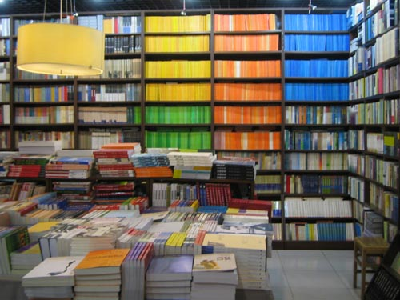| |
The publishing exchanges with the outside world are a comprehensive task closely associated with the economy, politics, culture and ideology. It serves as a bridge for the world to know China and for China to know the world. The publishing undertakings of New China have largely experienced three stages of development.
I. Start and boost the undertakings (1949-1965)
From 1949 to 1965, New China preliminarily set up the mechanism and steadily explored the channels for publishing exchanges with foreign countries, achieving admirable results. China kept making progress in this field during the period, although it met many difficulties in around 1960, because of interferences of domestic and foreign factors. They were mainly shown in the following aspects:
1. Establish and perfect a system managing publishing exchanges with foreign countries. When the General Administration of Press was abolished in 1952, the affairs of publishing foreign language publications were put under the General Administration of Publications. When Foreign Languages Publishing and Distribution Administration was established in 1963, the publishing of foreign languages publications and the export of Chinese and foreign languages publications was transferred to it. In the same year, the State Council approved to set up China Foreign Languages Bookstore to take charge of importing publications. China Foreign Languages Bookstore was administered by the State Science and Technology Commission. By that time, China basically settled the system to put publishing exchanges with the outside world under the administration of the Ministry of Culture, State Science and Technology Commission and Foreign Languages Publishing and Distribution Administration.
2. Set up new institutions for importing and exporting publications. China gradually eliminated private agencies importing and exporting books and periodicals. Following the establishment of New China, the agency importing and exporting publications the earliest was the International Bookstore. Meanwhile, Northeast China Xinhua Bookstore and Soviet Union-invested Qiulin Company were also allowed to import books and periodicals from the Soviet Union. In 1950, the International Bookstore began to handle publications export business, however, with limited export volumes. From November 1949 to June 1953, it imported 40 million copies of books and periodicals, and exported 4.3 million copies of books and periodicals.
In July 1954, in order to enhance distribution towards southeast Asian countries, Hong Kong and Macao, Higher Education Publishing House (the Commercial Press), China Financial and Economic Publishing House (China Press), and International Bookstore jointly invested to found the Guangzhou Office of the Commercial Press and China Press, which were state-privately operated agencies for exporting publications.

In accompany with establishing new agencies for importing and exporting publications, China gradually eliminated private agencies for importing and exporting books and periodicals. In the early years after the founding of New China, the International Bookstore steadily developed into a major business for exporting books and periodicals. However, as an emerging business, it was weak in its own capacity, with few export channels. It was hardly able to monopolize export of books and periodicals. As a result, there were some private bookstores and publishing houses in Beijing, Shanghai and Guangzhou, engaged in export of books and periodicals. Statistics show that China had 95 private businesses exporting books and periodicals in 1953. They were separated into 85 in Shanghai, nine in Beijing and one in Guangzhou. They exported a total of 850,000 copies of books and periodicals, valuing 1.5 billion yuan in old currency, or 150,000 yuan in new currency. Private businesses exporting books and periodicals facilitated expanding exchanges with the outside world. But the achievement was accompanied with some problems, such as betrayal of confidential matters and loss of rare ancient books. In subsequence, the General Administration of Publications decided in 1954 that export of books and periodicals was exclusively designated to the International Bookstore and its appointed agencies. Private businesses were banned to export books and periodicals.
|
|
